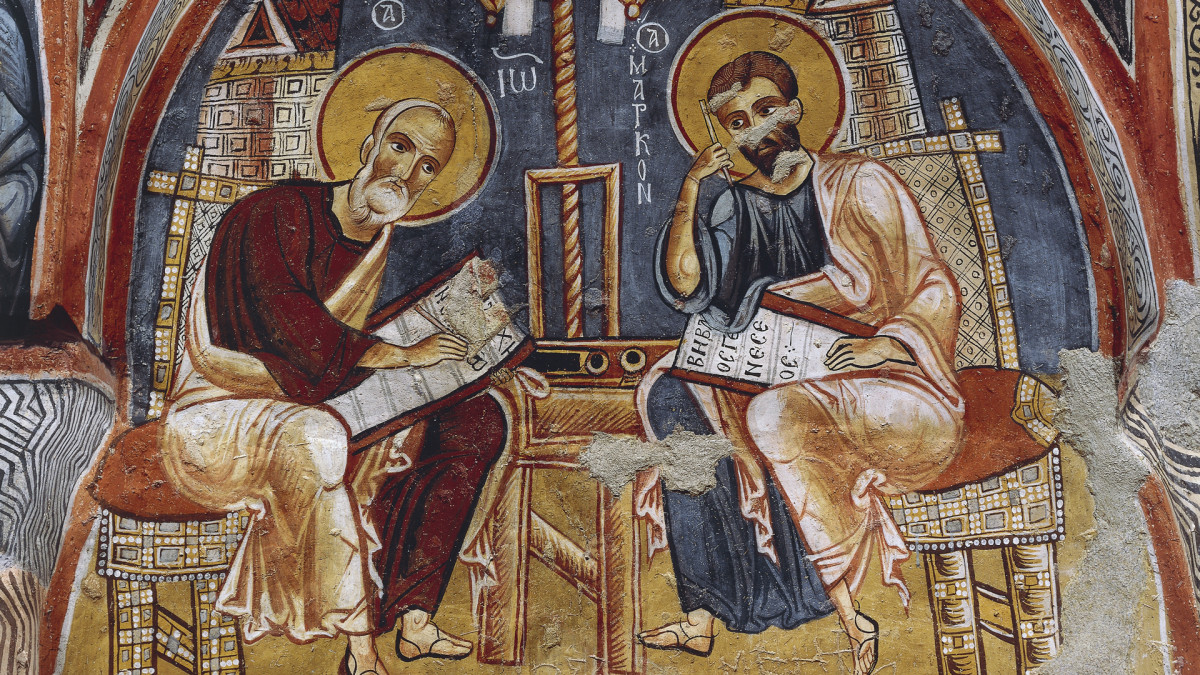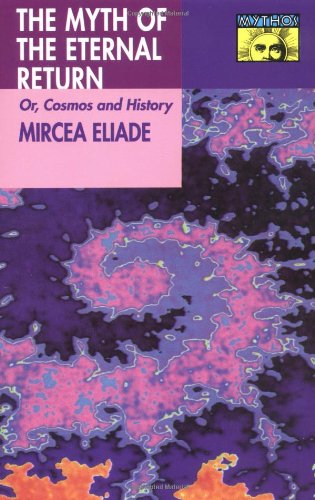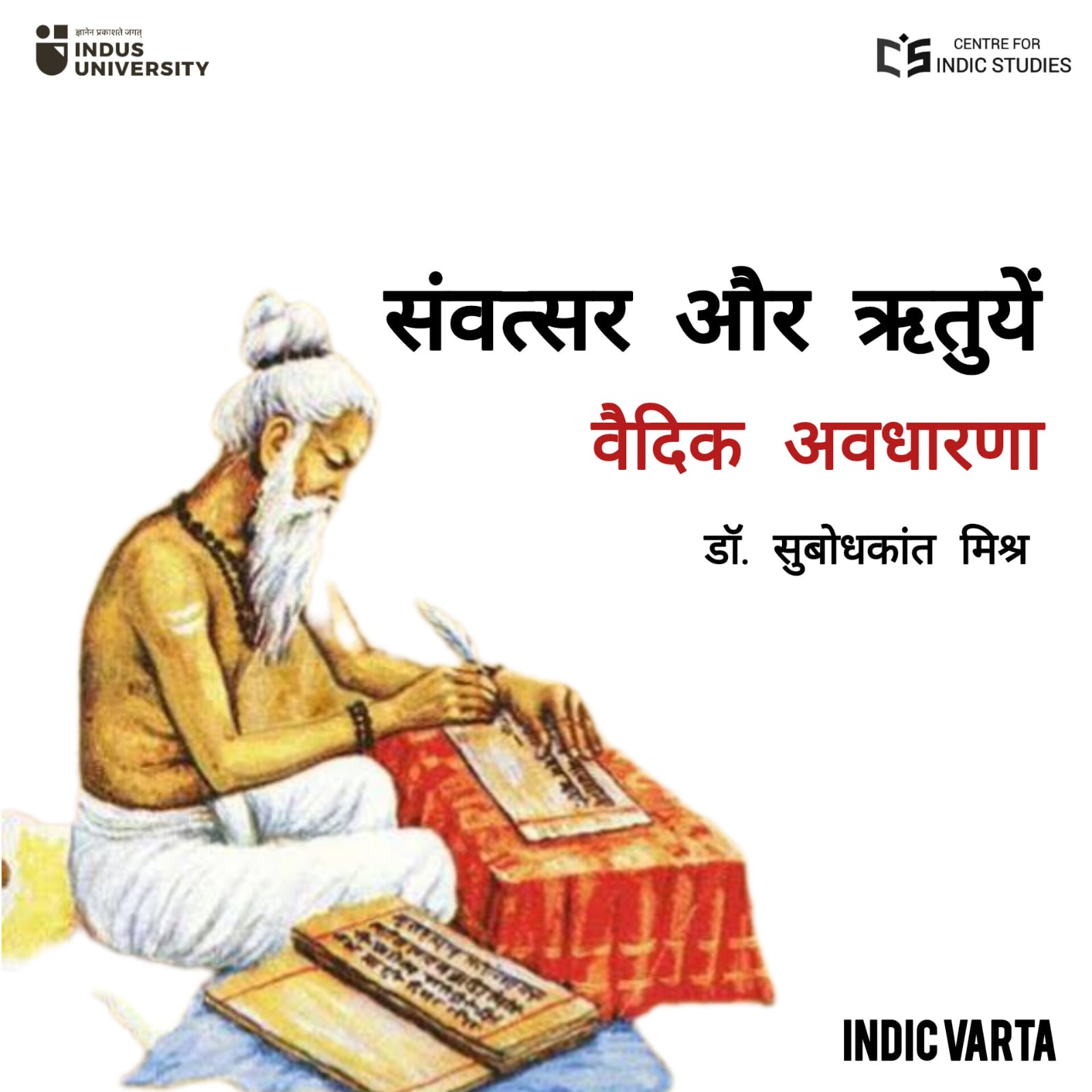- Visitor:18
- Published on:
Linear Time and History: A Theological Obsession
The Hebrews were the first to discover the meaning of history as the epiphany of God, and this conception, as we should expect, was taken up and amplified by Christianity.

Among the Hebrews, every new historical calamity was regarded as a punishment inflicted by Yahweh, angered by the orgy of sin to which the chosen people had abandoned themselves. No military disaster seemed absurd, no suffering was vain, for, beyond the “event,” it was always possible to perceive the will of Yahweh. Even more: these catastrophes were, we may say, necessary, they were foreseen by God so that the Jewish people should not contravene its true destiny by alienating the religious heritage left by Moses. Indeed, each time that history gave them the opportunity, each time that they enjoyed a period of comparative peace and economic prosperity, the Hebrews turned from Yahweh and to the Baals and Astartes of their neighbors. Only historical catastrophes brought them back to the right road by forcing them to look toward the true God. Then “they cried unto the Lord, and said, we have sinned, because we have forsaken the Lord, and have served Baalim and Ashtaroth; but now deliver us out of the hand of our enemies, and we will serve thee” (I Samuel 12:10).
This return to the true God in the hour of disaster reminds us of the desperate gesture of the primitive, who, to rediscover the existence of the Supreme Being, requires the extreme of peril and the failure of all addresses to other divine forms (gods, ancestors, demons). Yet the Hebrews, from the moment the great military Assyro-Babylonian empires appeared on their historical horizon, lived constantly under the threat proclaimed by Yahweh: “But if ye will not obey the voice of the Lord, but rebel against the commandment of the Lord, then shall the hand of the Lord be against you, as it was against your fathers” (I Samuel 12:15).
Through their terrifying visions, the prophets but confirmed and amplified Yahweh’s ineluctable chastisement upon His people who had not kept the faith. And it is only insofar as such prophecies were ratified by catastrophes (as, indeed, was the case from Elijah to Jeremiah) that historical events acquired religious significance: i.e., that they clearly appeared as punishments inflicted by the Lord in return for the impiousness of Israel. Because of the prophets, who interpreted contemporary events in the light of a strict faith, these events were transformed into “negative theophanies,” into Yahweh’s “wrath.” Thus they not only acquired a meaning (because, as we have seen, for the entire Oriental world, every historical even had its own signification) but they also revealed their hidden coherence by proving to be the concrete expression of the same single divine will. Thus, for the first time, the prophets placed a value on history, succeeded in transcending the traditional vision of the cycle (the conception that ensure all things will be repeated forever), and discovered a one-way time.
This discovery was not to be immediately and fully accepted by the consciousness of the entire Jewish people, and the ancient conceptions were still long to survive.
But, for the first time, we find affirmed, and increasingly accepted, the idea that historical events have a value in themselves, insofar as they are determined by the will of God. This God of the Jewish people is no longer an Oriental divinity, creator of archetypal gestures, but a personality who ceaselessly intervenes in history, who reveals his will through events (invasions, sieges, battles, and so on). Historical facts thus become “situations” of man in respect to God, and as such they acquire a religious value that nothing had previously been able to confer on them.
It may, then, be said with truth that the Hebrews were the first to discover the meaning of history as the epiphany of God, and this conception, as we should expect, was taken up and amplified by Christianity.

We may even ask ourselves if monotheism, based upon the direct and personal revelation of the divinity, does not necessarily entail the “salvation” of time, its value within the frame of history. Doubtless the idea of revelation is found, in more or less perspicuous form, in all religions, we could even say in all cultures. In fact, (the reader may refer to Chapter I), the archetypal gestures – finally reproduced in endless succession by man – were at the same time hierophanies or theophanies. The first dance, the first duel, the first fishing expedition, like the first marriage ceremony or the first ritual, became examples for humanity because they revealed a mode of existence of the divinity, of the primordial man, of the civilizing Hero. But these revelations occurred in mythical time, at the extra-temporal instant of the beginning; thus, as we saw in Chapter I, everything in a certain sense coincided with the beginning of the world, with the cosmogony. Everything had taken place and had been revealed at that moment, in iolo tempore; the creation of the world, and that of man, and man’s establishment in the situation provided for him in the cosmos, down to the least details of that situation (physiology, sociology, culture, and so on).
The situation is altogether different in the case of the monotheistic revelation. This takes place in time, in historical duration; Moses receives the Law at a certain place and at a certain date. Of course, here too archetypes are involved, in the sense that these events, raised to the rank of examples, will be repeated; but they will not be repeated until the times are accomplished, that is, in a new illud tempus. For example, as Isaiah (11:15-16) prophesies, the miraculous passages of the Red Sea and the Jordan will be repeated “in the day.” Nevertheless, the moment of the revelation made to Moses by God remains a limited moment, definitely situated in time. And, since it also represents a theophany, it thus acquires a new dimension: it becomes precious inasmuch as it is no longer reversible, as it is historical event.
Yet Messianism hardly succeeds in accomplishing the eschatological valorization of time: the future will regenerate time: that is, will restore its original purity and integrity. Thus, in illo tempore is situation not only at the beginning of time but also at its end. In these spacious Messianic visions, it is also easy to discern the very old scenario of annual regeneration of the cosmos by repetition of the Creation and by the drama of the suffering king.
The Messiah – on a higher plane, of course – assumes the eschatological role of the king as god, or as representing the divinity on earth, whose chief mission was the periodical regeneration of all nature. His sufferings recalled those of the king, but, as in the ancient scenarios, the victory was always finally the king’s. the only difference is that this victory over the forces of darkness and chaos no longer occurs regularly every year but is projected into a future and Messianic illud tempus.
Under the “pressure of history” and supported by the prophetic and Messianic experience, a new interpretation of historical events dawns among the children of Israel.
Without finally renouncing he traditional concept of archetypes and repetitions, Israel attempts to “save” historical events by regarding them as active presences of Yahweh. Whereas, for example, among the Mesopotamian peoples individual or collective sufferings were tolerated insofar as they were caused by the conflict between divine and demonic forces, that is, formed a part of the cosmic drama (the Creation being, from time immemorial and ad infinitum, preceded by chaos and tending to be reabsorbed in it; a new birth implying, from time immemorial and ad infinitum, sufferings and passions, etc.), in the Israel of the Messianic prophets, historical events could be tolerated because, on the one hand, they were willed by Yahweh, and, on the other hand, because they were necessary to the final salvation of the chosen people.
Re-handling the old scenarios (type; Tammuz) of the “passion” of a god, Messianism gives them a new value, especially by abolishing their possibility of repetition ad infinitum. When the Messiah comes, the world will be saved once and for all and history will cease to exist. In this sense we are justified in speaking not only of an eschatological granting of value to the future, to “that day,” but also of the “salvation” of historical becoming.
History no longer appears as a cycle that repeats itself ad infinitum, as the primitive peoples represented it (creation, exhaustion, destruction, annual re-creation of the cosmos), and as it was formulated – as we shall see immediately – in theories of Babylonian origin (creation, destruction, creation extending over considerable period of time; millennia, Great Years, aeons). Directly ordered by the will of Yahweh, history appears as a series of theophanies, negative or positive, each of which has its intrinsic value.
Certainly, all military defeats can be referred back to an archetype: Yahweh’ wrath. But each of these defeats, though basically a repetition of the same archetype, nevertheless acquires a coefficient of irreversibility: Yahweh’s personal intervention. The fall of Samaria, for example, though assimilable to that of Jerusalem, yet differs from it in the fact it was provoked by a new gesture on the part of Yahweh, by a new intervention of the Lord in history.
But it must not be forgotten that these Messianic conceptions are the exclusive creation of a religious elite. For many centuries, this elite undertook the religious education of the people of Israel, without always being successful in eradicating the traditional Paleo-Oriental granting of value to life and history. The Hebrews’ periodic returns to the Baals and Astartes are also largely to be explained by their refusal to allow a value to history, that is, to regard it as a theophany. For the popular strata, and especially for the agrarian communities, the old religious concept (that of the Baals and Astartes) was preferable; it kept them closer to “life” and helped them to tolerate history if not to ignore it. The Messianic prophets’ steadfast will to look history in the face and to accept it as a terrifying dialogue with Yahweh, their will to make military defeats bear moral and religious fruit and to tolerate them because they were regarded as necessary to Yahweh’s reconciliation with the people of Israel and its final salvation – their will, again, to regard any and every moment as a decisive moment and hence to give it worth religiously – demanded too great a religious tension, and the majority of the Israelites refused to submit to it, just as the majority of Christians, and especially the popular elements, refuse to live the genuine life of Christianity. It was more consoling, and easier, in misfortunes and times of trial, to go on accusing an “accident” (e.g., a spell) or a “negligence” (e.g., a ritual fault) that could easily be made good by a sacrifice (even though it were the sacrifice of infants to Moloch).
In this respect, the classic example of Abraham’s sacrifice admirably illustrates the difference between the traditional conception of the repetition of an archetypal gesture and the new dimension, faith, acquired through religious experience. Morphologically considered, Abraham’s sacrifice is nothing but the sacrifice of the first born, a frequent practice in this Paleo-Oriental world in which the Hebrews evolved down to the period of the prophets. The first child was often regarded as the child of a god; indeed, throughout the archaic East, unmarried girls customarily spent a night in the temple and thus conceived by the god (by his representative, the priest, or by his envoy, the “stranger”).
The sacrifice of this first child restored to the divinity what belonged to him. Thus the young blood increased what belonged to him. Thus the young blood increased the exhausted energy of the god (for the so-called fertility gods exhausted their own substance in the effort expended in maintaining the world and ensuring it abundance; hence they themselves needed to be periodically regenerated).
And, in a certain sense, Isaac was a son of God, since he had been given to Abraham and Sarah when Sarah had long passed the age of fertility. But Isaac was given them through their faith; he was the son of the promise and of faith. His sacrifice by Abraham, although in form it resembles all the sacrifices of newborn infants in the Paleo-Semitic world, differs from them fundamentally in content.
Whereas, for the entire Paleo-Semitic world, such a sacrifice, despite its religious function, was only a custom, a rite whose meaning was perfectly intelligible, in Abraham’s case it is an act of faith. He does not understand why the sacrifice is demanded of him; nevertheless, he performs it because it was the Lord who demanded it. By this act, which is apparently absurd, Abraham initiates a new religious experience, faith. All others (the whole Oriental world) continue to move in an economy of the sacred that will be transcended by Abraham and his successors. To employ Kierkegaard’s terminology, their sacrifices belonged to the “general”; that is, they were based upon archaic theophanies that were concerned only with the circulation of sacred energy in the cosmos (from the divinity to man and nature, then from man – through sacrifice – back to the divinity, and so on). These were acts whose justification lay in themselves; they entered into a logical and coherent system; what had belonged to God must be returned to him. For Abraham, Isaac was a gift from the Lord and not the product of a direct and material conception.
Between God and Abraham yawned an abyss; there was a fundamental break in continuity. Abraham’s religious act inaugurates a new religious dimension; God reveals himself as personal, as a “totally distinct” existence that ordains, bestows, demands, without any rational (i.e., general and foreseeable) justification, and for which all is possible. This new religious dimension renders “faith” possible in the Judeo-Christian sense.
We have cited this example in order to illuminate the novelty of the Jewish religion in comparison with the traditional structures. Just as Abraham’s experience can be regarded as a new religious position of man in the cosmos, so, through the prophetic office and Messianism, historical events reveal themselves in the consciousness of the Israelitic elites, as a dimension they had not previously known: the historical event becomes a theophany, in which are revealed not only Yahweh’s will but also the personal relations between him and his people. The same conception, enriched through the elaboration of Christology, will serve as the basis for the philosophy of history that Christianity, from St. Augustine on, will labor to construct. But let us repeat: neither in Christianity nor in Judaism does the discovery of this new dimension in religious experience, faith, produce a basic modification of traditional conceptions. Faith is merely made possible for each individual Christian. The great majority of so-called Christian populations continue, down to our day, to preserve themselves from history by ignoring it and by tolerating it rather than by giving it the meaning of a negative or positive theophany.
However, the acceptance and consecration of history by the Judaic elites does not mean that the traditional attitude, which we examined in the preceding chapter, is transcended. Messianic beliefs in a final regeneration of the world themselves also indicate an anti-historic attitude. Since he can no longer ignore or periodically abolish history, the Hebrew tolerates it in the hope that it will finally end, at some more or less distant future moment.
The irreversibility of historical events and of time is compensated by the limitation of history to time. In the spiritual horizon of Messianism, resistance to history appears as still more determined than in the traditional horizon of archetypes and repetitions; if, here, history was refused, ignored, or abolished by the periodic repetition of the Creation and by the periodic regeneration of time, in the Messianic conception of history must be tolerated because it has an eschatological function, but it can be tolerated only because it is known that, one day or another, it will cease. History is thus abolished, not through consciousness of living an eternal present (coincidence with the a temporal instant of the revelation of archetypes), nor by means of a periodically repeated ritual (for example, the rites for the beginning of the year) – it is abolished in the future.
Periodic regeneration of the Creation is replaced by a single regeneration that will take place in an in illo temporeto come. But the will to put a final and definitive end to history is itself still an anti-historical attitude, exactly as are the other traditional conceptions.
Source: “History Regarded as Theophany” in Mircea Eliade, The Myth of the Eternal Return: Cosmos and History (Princeton University Press, 1992), p. 102-111
Center for Indic Studies is now on Telegram. For regular updates on Indic Varta, Indic Talks and Indic Courses at CIS, please subscribe to our telegram channel !
- 9 min read
- 0
- 0










